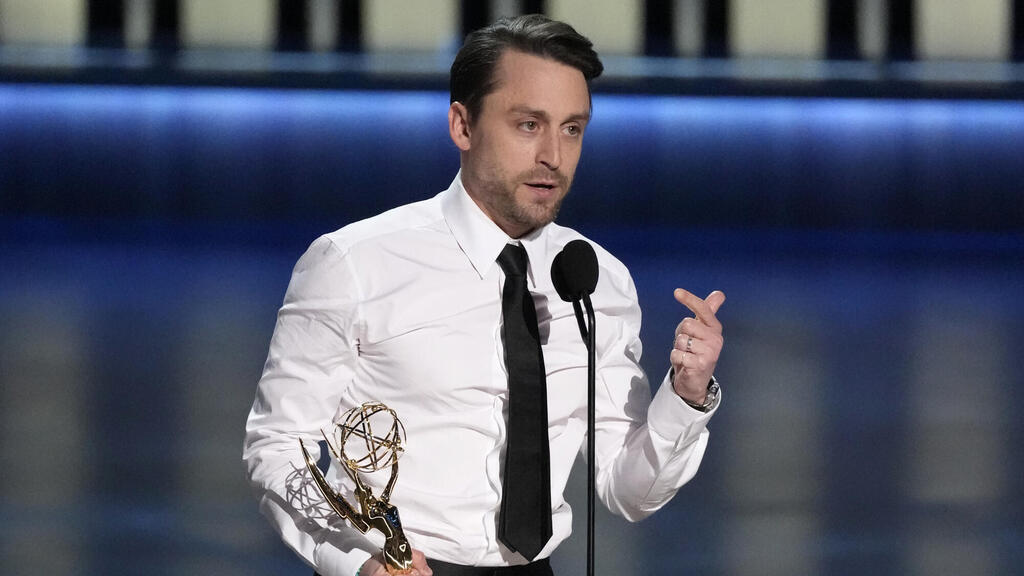According to all unwritten rules of the Sundance Film Festival, A Real Pain was not supposed to be included in the prestigious film competition, as it is directed by a white, Jewish filmmaker, featuring a story about two white, Jewish men. There are almost no female characters in it, and the presence of minorities is minimal.
Read more:
Despite this, and in contrast to the progressive character of the festival, which is considered the largest American independent film festival intending to empower silenced voices - Jesse Eisenberg's brilliant and moving drama surpassed everything around it and was received with great enthusiasm at the premiere. It cannot be ruled out that the film, which takes place entirely during a heritage trip to Poland, will be the big winner at the Sundance Awards.
In the meantime, it was sold to Searchlight for $10 Million - and this is the real prize that every independent filmmaker wishes to win at Park City in the state of Utah.
It is not certain that winning an award was Eisenberg's intention when he wrote the script inspired by his personal story. In his second film as a director, the beloved actor and playwright embarked on a journey of personal discovery through his family heritage, which is intertwined with the terrible history of his people, bringing to the screen a charged drama-comedy full of witty humor, emotional depth and a lot of pain - individual and collective, that seem to be inseparable. Nor is it possible to separate Eisenberg, as he is featured on the screen, from the neurotic Jewish man he is in real life.
The background story of the film is a journey through the childhood memories of his Holocaust survivor grandmother, Dory, and he even went to visit her childhood home as part of the production, which was partly supported by Emma Stone and her husband, Dave McCary, who joined the film as producers.
The plot follows two main characters, David and Benji Kaplan, Jewish-American cousins who go to Poland on a guided tour, which is designed for Jewish tourists and passes between heritage and Holocaust memorial sites, as a tribute to their recently deceased grandmother who instructed them in her will to visit her hometown after her death.
This is a rare opportunity for the two to renew their family bond and kinship they shared as children before their adult lives led them to go on separate ways. And it doesn't go smoothly. David (Eisenberg) is married and has a son, and he maintains a mundane but decently paying job. In contrast, Benji (Kieran Culkin) is largely stuck in adolescence. He is silly, cynical, insolent and unrestrained. He lives in his mother's basement and smokes marijuana; he has no direction in life or a job. His personality structure does not change even in Poland, which leads to quite a few twists and turns during the guided tour, much to David's dismay, as well as the other members of the tour group.
The tour, led by a knowledgeable British guide (Will Sharpe), includes also a couple of American retirees (Liza Sadovy and Daniel Orsekes), a divorced woman experiencing an existential crisis (Jennifer Grey, best remembered from Dirty Dancing) and a refugee from Rwanda (Kurt Egyiawan) who converted to Judaism, and for him, Holocaust remembrance constitutes a connection between the Jewish religion that he adopted and the trauma of the genocide that he experienced as a child in his homeland.
What was supposed to be another organized Holocaust trip through memorial sites in Warsaw, Lublin and the Majdanek concentration camp, turns into an unexpected adventure thanks to Benji's breaking down of emotional barriers, and his mental breakdown while trying to connect with the memory.
For example, during a train ride, they all have first-class tickets, and Benji starts ranting about how offensive it is given what trains meant to Jews during the Holocaust, as they were transported in cattle wagons to their deaths in extermination camps. In another case, in an old cemetery, he reprimands the guide for sticking to information and facts that have nothing to do with past and present reality; this leads to a beautiful gesture of placing stones on the oldest Jewish gravestone in Poland.
Although the film is based on Eisenberg's family story, the one who steals the show is Kieran Culkin, in a spectacular performance that somewhat reminds of his character as Roman Roy in Succession (including a suspicious fondness for older women) - a role for which he recently won both a Golden Globe Award and a Primetime Emmy Award. However, his character in the film involves so much emotion and pain, struggling to suppress the intergenerational trauma of the Holocaust survivors and their descendants, although he is not at all Jewish.
Speaking after the film's premiere, Eisenberg said he has never seen a greater performance in person, and maybe on screen. It is an acknowledgment that Culkin not only gets all the attention in his character as Benji, in his love-hate relationship with David, but also in acting opposite Eisenberg. Together they merge in an effective, credible and emotional manner the complex relationship between David and Benji and the collective trauma of the Holocaust, for Jews and humanity as a whole (in his speech after the screening, Eisenberg said that the character of the refugee from Rwanda points to other disasters of genocide around the world then and now).
With tenderness, sensitivity, and witty jokes, A Real Pain manages to say something significant about personal trauma and universal trauma, the relationship between them and the importance of emotion to keep the memory of the Holocaust in our everyday consciousness. In this respect, it is one of the most effective Holocaust films, and especially in one chilling scene in Majdanek where all the characters are silent for a change, and it is their sad look that speaks as they pass between the prisoners' dormitories and the gas chambers. The silent sights that echo the horrors of the past are amplified through the difficult emotions that the characters express as a response, and we follow them.
As spectators, we are embedded in the experience, as part of the place and time and personal emotions, and through the characters we get even more excited. Thus, the film stands as a reminder of the Holocaust and the elusive impressions it left on us, just as it is used for Eisenberg as a tribute to his beloved grandmother Dory; like the stones that are placed on her tombstone to preserve her memory.
Kippa, Tallit and Aric Einstein
Alongside A Real Pain, another film that can be labeled as Jewish was screened in Park City – Between the Temples directed by Nathan Silver, which was also included in the Dramatic competition at Sundance Festival. This film, too, is a comedy-drama, but in a completely different cinematic style – it is rather frantic and energetic. It is quite surprising to see Jason Schwartzman wearing a Kippah on his head and a Tallit on his shoulders, as required by his role as Ben Gottlieb, a cantor in the local synagogue who lost his wife and also his voice following her death. The existential crisis causes him to reconsider his faith in God, in humanity and especially in himself. When he is asked to sing Yedid Nefesh from the synagogue stage, he chokes and runs helplessly all the way to the local bar. He drinks a little too much and gets into a fight, and the one who comes to his rescue is Carla (Carol Kane), or as he used to call her as a student in elementary school: Mrs. O'Connor. The music teacher is the one who might save him from the hopeless depression he is in.
The developing relationship between the kosher Jewish man and a gentile woman who is about 30 years older than him will go in unexpected directions; it starts with Carla's desire to hold a Bat Mitzvah ceremony that she has never had, and Ben commits to teaching her. While he introduces her to a foreign spiritual world full of inspiration and a new beginning at a late age, she embraces him with warmth and tenderness that he lacks in the stressful Jewish home of his mother (played by Caroline Aaron) and her overbearing proselyte partner (Dolly de Leon), who are all interested in matching him with a new bride in an attempt to rescue him from loneliness and bereavement.
The local rabbi (Robert Smigel) joins these efforts, but even the spiritual guidance is not enough to rescue him from his existential crisis - not even the rabbi's humble and fragile daughter (Madeline Weinstein) who is interested in the gloomy widower, and suspiciously reminds him of his late wife. Thus, the depressed cantor who just wants to be left alone is forced to maintain satisfactory communication with all the crazy characters that surround him.
Between the Temples is a surrealist comedy saturated in Yiddishkeit and has quite a few amusing scenes, such as the lesson during which the frustrated cantor tries to explain how to make the sound of the eighth Hebrew letter Heth - ("Imagine that popcorn is stuck in your throat, now try to spit it out"); or moments that can stand on their own within the narrative sequence like the trip experienced by Ben when he watches the video of his Bar Mitzvah while under the influence of drugs, or the excellent, deliberately cacophonous Shabbat dinner scene, during which all the family members and friends meet the Bat Mitzvah bride Carla.
The film as a whole may not be as coherent and emotional work as A Real Pain, but it is certainly flattering to Jewish spectators. Israeli viewers will even recognize to their astonishment some Israeli tunes that were inserted into the soundtrack (Hee Tavoh by Arik Einstein, Mi Anachnu by Shmulik Kraus, Tsiyur by Mati Caspi, and even Pamela by Boaz Sharabi and others). In the absence of Israeli films competing at the festival, this is the most Zionist we will get this year at Sundance.



